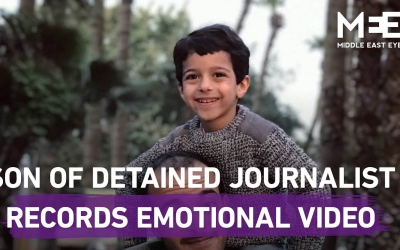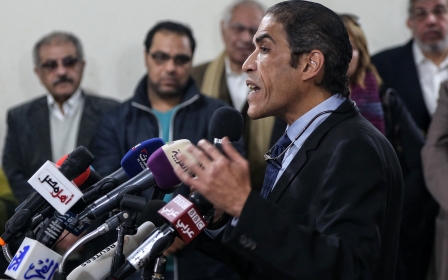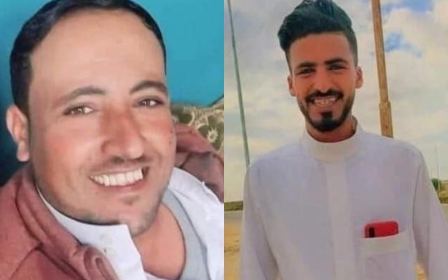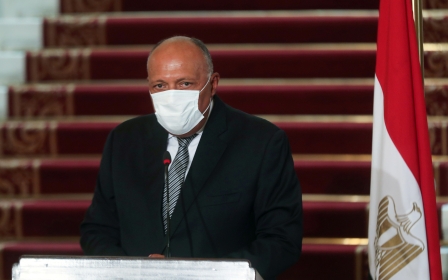Egypt releases two journalists after international outcry
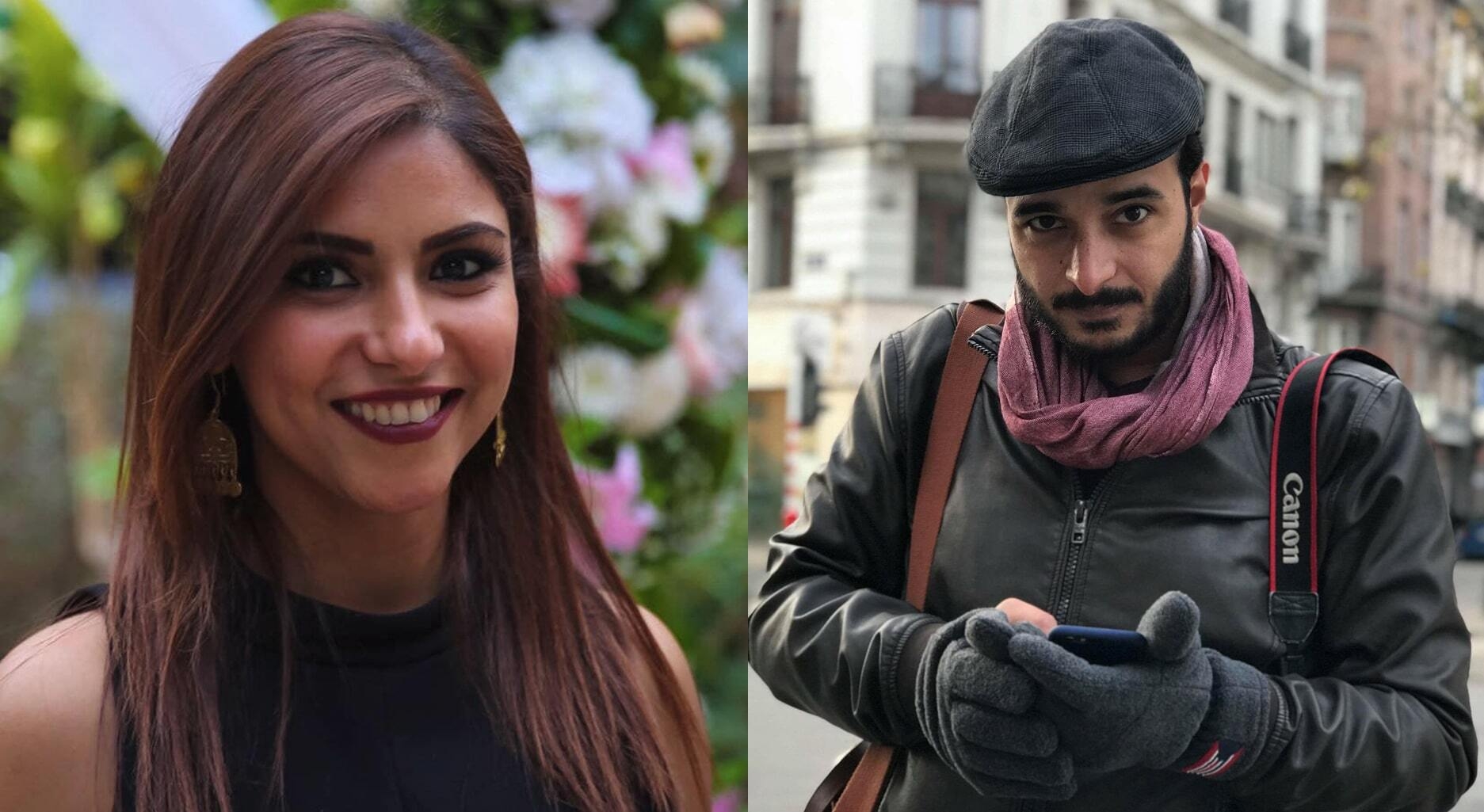
Egyptian authorities released journalists Solafa Magdy and her husband Hossam el-Sayyad on Wednesday after more than a year in pre-trial detention, which rights groups have condemned as an attack on free speech.
Magdy and Sayyad had been in custody for more than 16 months on charges of “spreading false news” and “joining a terrorist group”, as part of case No 488 of the year 2019, which is linked to the crackdown on the rare anti-government protests of March that year.
The release came a day after journalist Khaled Dawoud, who was imprisoned on the same charges, was also released.
'They should not have spent a single day in prison in the first place'
- Hussein Bayoumi, Amnesty International
On Wednesday, Amnesty International, which had led an international campaign for the couple’s freedom, welcomed the news of the three journalists' release, but said that “they should not have spent a single day in prison in the first place”.
“We hope that the Egyptian authorities will continue to release arbitrarily detained journalists and the thousands of others behind bars whose only crime was peacefully exercising their rights,” Amnesty’s Egypt researcher Hussein Bayoumi said in a statement to Middle East Eye.
New MEE newsletter: Jerusalem Dispatch
Sign up to get the latest insights and analysis on Israel-Palestine, alongside Turkey Unpacked and other MEE newsletters
Magdy had recently been quoted by rights groups as saying that she had been a victim of physical abuse on several occasions while in custody in Al-Qanater women’s prison. According to a joint statement by a number of Egyptian rights organisations, Magdy’s lawyers submitted evidence proving the incidents of assault, including beatings and dragging, in her testimony before prosecutors on 19 January.
In the report, Magdy’s defence team said that on the evening of 29 November 2020, she was taken from her cell blindfolded to interrogation before an officer who requested her cooperation in supplying names and information about other people. When she refused, she was threatened with not seeing her son again, that her husband would be harmed, and that she would be harassed again.
The lawyers also said that Magdy endured humiliating treatment during her transportation from prison to attend the prosecution hearing. Prison staff forced her to completely remove her clothing, allegedly for inspection. She was then dragged by a police officer from the inspection room to the deportation vehicle, they said.
Her family reported that when they saw her on 27 January, she appeared frail and was unable to walk unassisted.
Her mother said that she was suffering from severe bleeding caused by the prison administration’s forced examination of her uterus, despite medical reports verifying that she had already undergone surgery in her uterus to remove a tumour. No investigations have been held into the allegations of abuse. The interior ministry denied the physical abuse allegations, claiming that they were part of a disinformation campaign led by the Muslim Brotherhood opposition group.
Magdy had also been subjected to a number of violations during her arrest in November 2019. Magdy, Sayyad and their colleague Mohammed Salah were sitting at a cafe in Cairo when they were arrested by National Security forces and subjected to torture, beatings, and abuse. Magdy's phone, laptop and car had been confiscated.
In August 2020, Magdy was brought before the Supreme State Security Prosecution (SSSP) in connection to another case (No 855 of 2020) and accused of the same charges as her first case. She refused to respond to questioning regarding the second case, explaining that there was no difference between the two cases.
The practice of adding pre-trial detainees to new cases with similar charges has been dubbed the “recycling of cases” and has been condemned as a new method used by the SSSP to perpetuate the provisional detention of political prisoners. In Egyptian law, the maximum period of pre-trial detention should be two years.
The second case included other political prisoners held in pre-trial detention, such as human rights defenders Mahienour el-Masry, Esraa Abdel-Fattah and Mohamed el-Baqer. The evidence used in the charges relied mainly on investigation case files prepared by the National Security Agency, which lawyers and defendants were not allowed to access.
In February, eight American human rights organisations wrote a letter to the US Acting Assistant Secretary for the Bureau of Near East Affairs Joey Hood, to raise the cases of Magdy, Sayyad and their friend Salah within the State Department and asking it to engage directly with Cairo to call for their immediate and unconditional release.
Crackdown on press freedom
According to Amnesty International, Magdy and Sayyad’s arrests were linked to their independent journalism work.
The crackdown on journalists has intensified in Egypt in recent years, especially since President Abdel Fattah el-Sisi, a former army general, came to power in 2014.
The international press freedom watchdog Reporters Without Borders (RSF) describes Egypt as one of the worst jailers of journalists worldwide, and ranks it at 166 in the 2020 World Press Freedom Index.
The group said that since Sisi’s military coup in 2013, the country’s media has been undergoing a process of “Sisification”, with a witchhunt waged against opposition journalists and those who voice criticism online.
According to the Committee to Protect Journalists, as of 1 December 2020, there were 27 journalists imprisoned in Egypt for their work.
Earlier this year, Amnesty International denounced inhumane conditions in Egypt’s prisons, citing the shared experiences of 67 individuals imprisoned across the country, including 10 who died in custody and two who died shortly after being released.
The report said that prisoners were held in "unventilated, overcrowded cells with substandard sanitation", and listed physical torture, medical neglect and sexual abuse among the conditions faced by detainees.
According to a number of NGOs and rights organisations, there are more than 60,000 political prisoners in Egypt.
The Arabic Network for Human Rights Information (ANHRI) said in a report on Tuesday that Egyptian authorities had built 35 new prisons in just 10 years, despite increasing demands from human rights organisations to release political detainees and improve human rights conditions.
Middle East Eye delivers independent and unrivalled coverage and analysis of the Middle East, North Africa and beyond. To learn more about republishing this content and the associated fees, please fill out this form. More about MEE can be found here.


